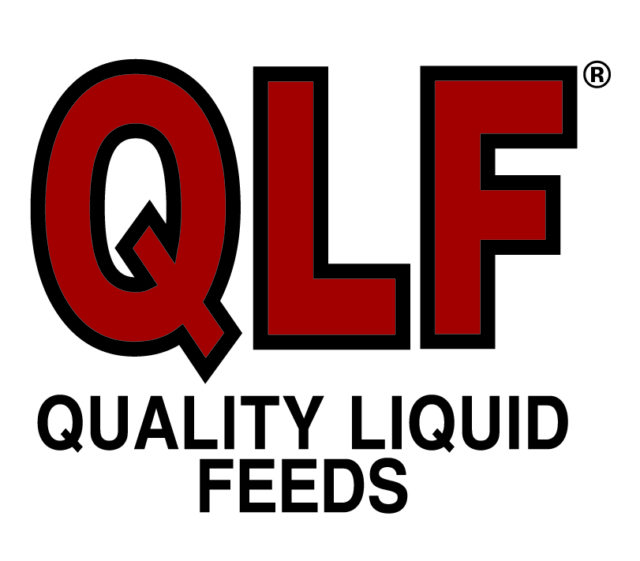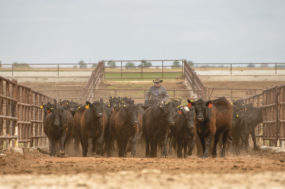For the most part, meeting the crude protein and degradable intake protein (or DIP, the protein that is degraded in the rumen) is all that is necessary when formulating beef cattle rations.
As microbes are washed out of the rumen, the microbial protein synthesized in the rumen is subsequently utilized by cattle to meet their protein requirements.
In most cases for beef cattle, the microbial protein synthesized in the rumen is sufficient to meet all of their protein needs, with the exception being young, rapidly growing beef cattle and high-lactating females.
Crude protein content of distillers grains can range from 29 to 33 percent (DM basis), with an average of 31 percent.
With such a high protein content relative to cost, distillers grains are often used as a protein source for cattle when available.
In regards to meeting the DIP requirement of the rumen microbe, the ruminally undegraded intake protein (UIP) content of DG is relatively high, with reported estimates for distillers grains being 45 to 65 percent of crude protein.
Because of the low ruminal digestibility of CP from distillers grains, the NRC model often predicts a DIP deficiency in situations where distillers grains are used as the primary protein source.
To address this concern in finishing diets, the University of Nebraska conducted a study in 2006 where they fed finishing heifers dry-rolled corn-based diets containing 10 and 20 percent (DM basis) dried distillers grains which were predicted by the NRC model to have DIP deficiencies of 192 and 111 g/d, respectively.
To address the predicted DIP deficiencies, urea was added to the 10 and 20 percent DDG diets at 0.80 and 0.63 percent (DM basis), respectively.
The addition of urea to the diets did not statistically improve G:F, although a small numeric increase in G:F was observed with the addition of urea to the 10 percent DDG diet.
The authors concluded that sufficient recycling of N to the rumen occurred, and suggested that a conservative application of the data would be to add a small amount of urea to diets containing 10 percent DDG.
Animals have the ability to convert excess amino acids to urea, and cattle can then recycle that urea into the rumen to provide a source of nitrogen for the rumen microbes.
Previous research suggested the relationship to the amount of crude protein in the diet and the amount of urea recycled in the rumen was poor.
However, work at the University of Nebraska may indicate that as the amount of protein supplied to the small intestine is increased, the amount of urea recycled to the rumen is increased to some degree.
One aspect of protein nutrition related to distillers grains that has been overlooked by researchers is that of amino acid nutrition in diets that contain distillers grains.
This is understandable because it has been difficult to demonstrate amino acid deficiencies in beef cattle diets.
Again, this is likely due to the fact that most of the animal’s protein requirement is met by the rumen microbes, and the amino acid balance of the microbial protein is, for the most part, sufficient for cattle.
However, when a large amount of distillers grains is fed, there is a lot of rumen bypass protein that escapes degradation in the rumen, as discussed above.
Generally speaking, corn protein is deficient in amino acids such as lysine and, because distillers grains are often derived from corn, distillers grains protein is also lysine-deficient.
Even though the microbial protein produced in the rumen may have an adequate amino acid balance, when distillers grains are added to the diet we are supplying the lower GI tract with a lot of protein that is deficient in lysine.
Therefore, the possibility exists that we have disrupted the amino acid balance of the protein supplied to the lower GI tract and that supplementation of certain ruminally protected amino acids may be of benefit.
Just to reiterate though, this idea has not been examined widely in the published research, so at this point it is not recommended to supplement distillers grains diets that contain sufficient crude protein with additional protein sources unless a benefit has been proven.
The only real benefit has been shown for urea when lower levels of distillers grains are fed. ![]()

Mark Corrigan
Beef Technical
Services Manager
Lallemand Animal Nutrition
mcorrigan@lallemand.com








